By Raqib Hameed Naik, TwoCircles.net
West Bengal: In Birajmoni, a Muslim-majority village in the Sunderbans, West bengal, almost the entire population lives in abject poverty, depending on the agricultural fields for their day-to-day needs.
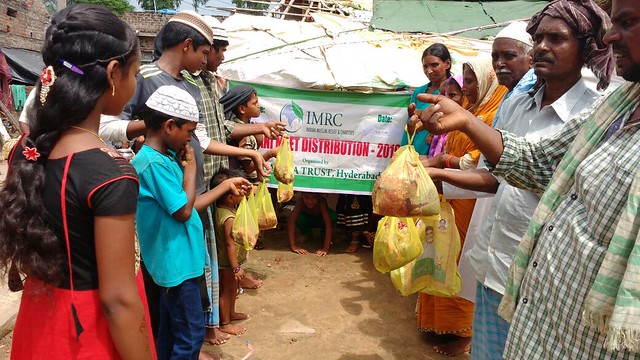
Abed Ali who lives in Birajmoni, works on his small piece of agricultural land. Cooking meat at home is luxury for Ali and for majority of the other residents of the village.
Similar is the case of Pathankhali village and the Sunderban Siddiqiya Madrasa in the vicinity.
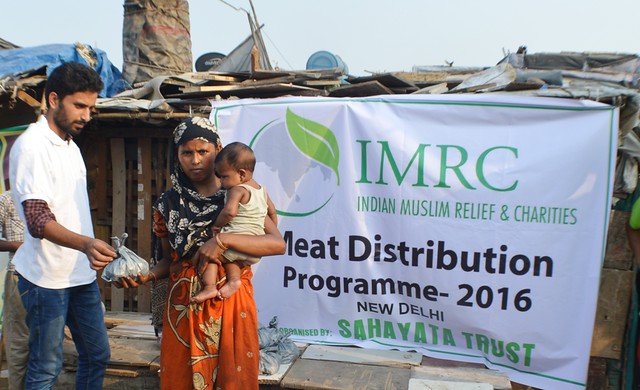
So, to help these villages celebrate the occasion of Eid ul Adha, US-based Indian Muslim and Charities (IMRC), under its Qurbani Program distributed meat among the five villages of Sundarbans as well in other parts of West Bengal.
“Meat distribution on such large scale has taken place here in these poor villages for the very first time. Every house in our village cooked meat this Eid only due to the efforts of IMRC who undertook this distribution program,” said, Maulana Asjad, who is caretaker of Sunderbans Siddiqiya Madrasa.
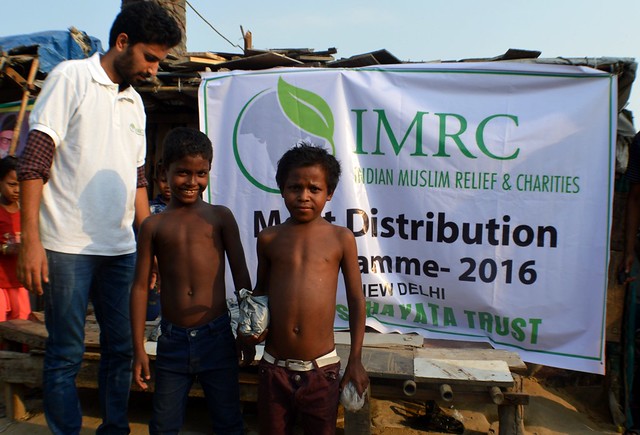
Every year thousands of poor families benefit from IMRC Qurbani program across India. This year also meat distribution took place villages across 17 states in India. A total of 5,207 Qurbanis were performed, thus benefitting 39,052 truly deprived families (close to 2 lakh people) bringing them nourishing meat, so that they could equally participate in the celebrations of Eid AL Adha.
The states where IMRC meat distribution took place are, Haryana, Uttarakhand, Delhi, Uttar Pradesh, West Bengal, Manipur, Chhattisgarh, Maharashtra, Odisha, Karnataka, Bihar, Jharkhand, Andhra Pradesh, Telangana, Kerala, Tamil Nadu.
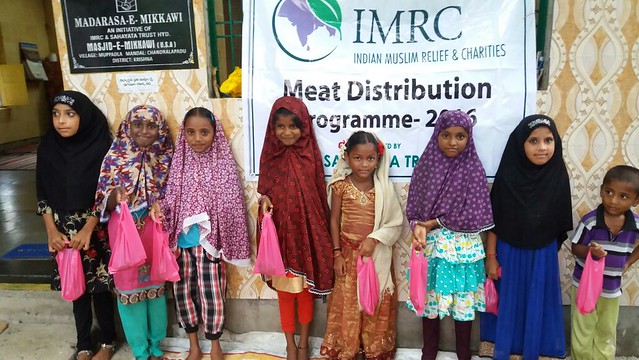
In Pukhri village of Bihar, 470 kms from West Bengal, Najo Mistry works as a daily wage labourer to sustain the family of four. His village was waiting since a week before the Eid for the meat distribution to take place.
“The cost of 1 kg meat is close to Rs 400 and my per day earning is Rs 250 and that too is possible if I get some work. So, purchasing meat is out of bounds for me but since last few years we are getting it for free every Eid Al Adha,” said Mistri.
In Delhi, Ambia Khatoon lives with her 4-year-old kid in a makeshift tent in Kanchangunj area of Jamia Nagar. She fled Assam in 2012 with her husband after the riots broke out between indigenous Bodos and Bengali-speaking Muslims. They have been forced to live like refugees in their own country. Her husband works as a scrap collector, walking through lanes in search of used bottles, paper and iron. But he is not the lone scrap collector. Most of the time he returns home empty handed.
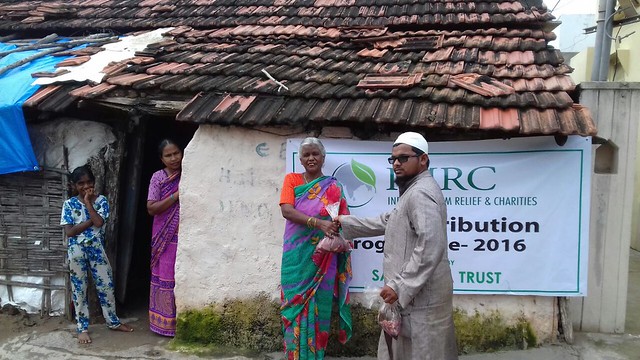
But this Eid Khatoon and his family were also able to equally celebrate Eid as she was also one among the other hundreds of beneficiaries of IMRC meat distribution programme in Delhi.
Indian Muslim Relief & Charities began in 1981 and helps run several programmes throughout the country in partnership with over 100 organisations. It focuses on providing education, emergency relief, medical & legal aid, shelter and food for the needy and runs schools, orphanage, hospital, colleges, etc. IMRC has been at the forefront of providing immediate relief to affected victims of the, 2016 Bihar floods, 2015 Nepal earthquake, 2015 Chennai floods, 2014 Kashmir floods, 2013 Muzaffarnagar riots, 2012 Assam riots, and other natural/man-made calamities.

